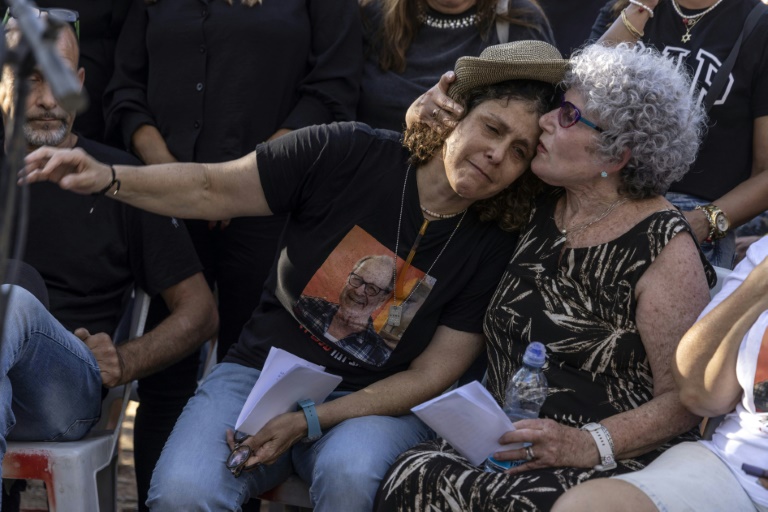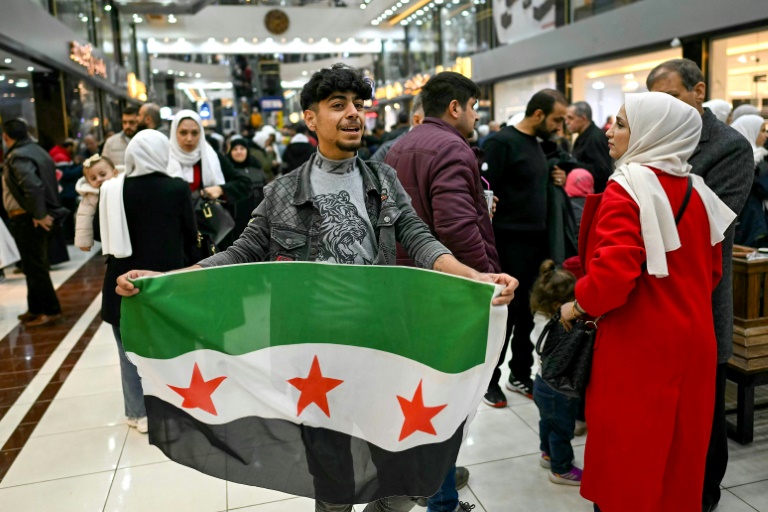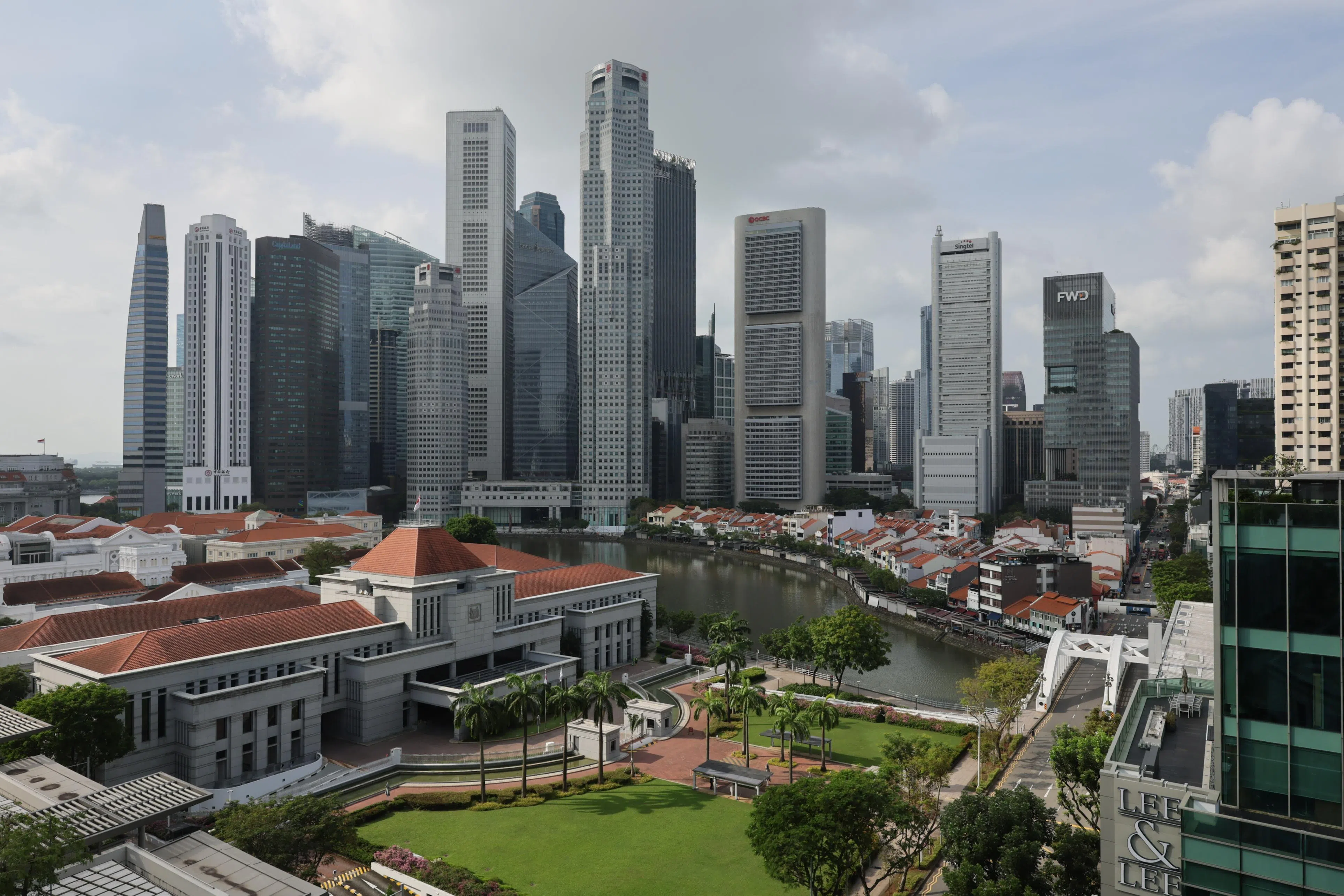Tearful crowds gathered on Wednesday for the funerals of hostages whose bodies were recovered this week from war-torn Gaza, with some mourners voicing anger that they were not saved.
“In what world must families beg, scream and cry for the return of their loved ones, alive or murdered? Bring them all back,” Esther Buchshtab said while standing in front of her son Yagev’s grave.
The Israeli military on Tuesday announced it had retrieved the remains of Yagev, 34, and five other hostages from a tunnel in Gaza’s southern area of Khan Yunis after a battle with Palestinian militants.
They were among 251 hostages taken during Hamas’s unprecedented October 7 attack which triggered the war.
Of those, 105 are still being held hostage inside the Gaza Strip, including 34 the military says are dead.
Yagev’s widow, Rimon Kirscht, also spoke during Wednesday’s ceremony in Nirim, standing in front of his coffin draped in an Israeli flag.
“My life, I just want to say sorry. You deserved so much better,” she said.
“Thank you for teaching me. I am yours. I am here.”
The crowd quickly dispersed to attend the funeral of Avraham Munder, 79, another hostage whose body was recovered on Tuesday, in the nearby Nir Oz kibbutz.
Nir Oz was the site of one of the worst massacres on October 7 and more than 70 of its residents were taken captive.
Former Israeli prime minister Naftali Bennett and at least two ministers from the current government attended the funeral in Nir Oz, where speeches were interspersed with songs in Hebrew to honour Munder — a music lover and amateur singer.
The October 7 attack resulted in the deaths of 1,199 people in Israel, most of them civilians, according to an AFP tally based on Israeli official figures.
Israel’s retaliatory military campaign has killed 40,223 Palestinians in Gaza, according to the Hamas-run territory’s health ministry, which does not give details of civilian and militant deaths.
Many who came to pay their respects to the dead Israeli hostages on Wednesday lamented the fact that months of negotiations have yet to yield a deal releasing the rest.
“We were promised efforts to reach an agreement,” said Nissan Kalderon, 56, whose brother Ofer Kalderon, a French-Israeli, is still held captive in Gaza.
“We really hope that the agreement will be concluded immediately, so that we can save those who are still alive and bring back the dead to bury them, because every day that passes, they die. This is the proof,” said Kalderon, wearing a T-shirt with his brother’s photograph.
Nir Oz resident Adriana Adar, whose nephew Tamir Adar’s body is still in Gaza, said she felt “despair” above anything else.
“I haven’t stopped crying for days,” she said.
“This week, we’ve been going from one funeral to another. This could have been avoided. All those who are buried now could have come back alive, and the fact that they are buried here, is not enough to comfort us.”
AFP

AFP

AFP






